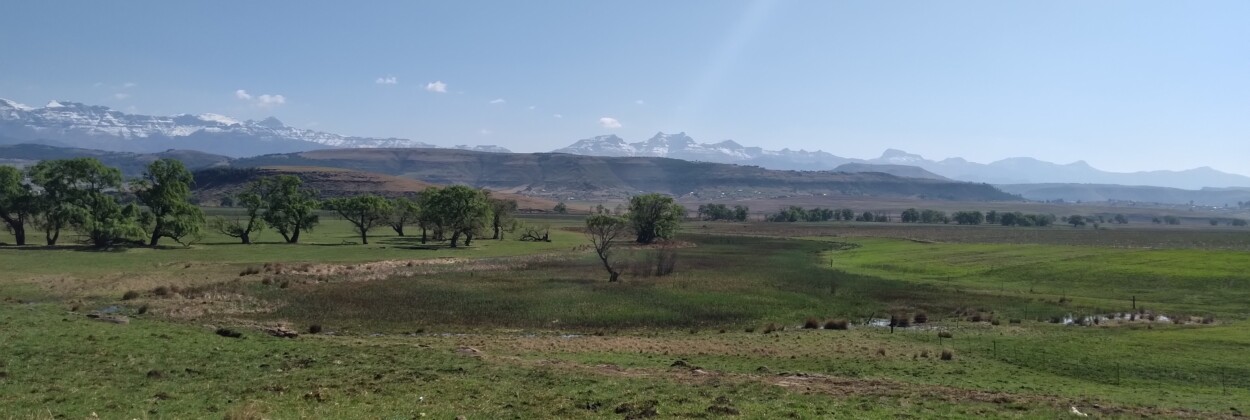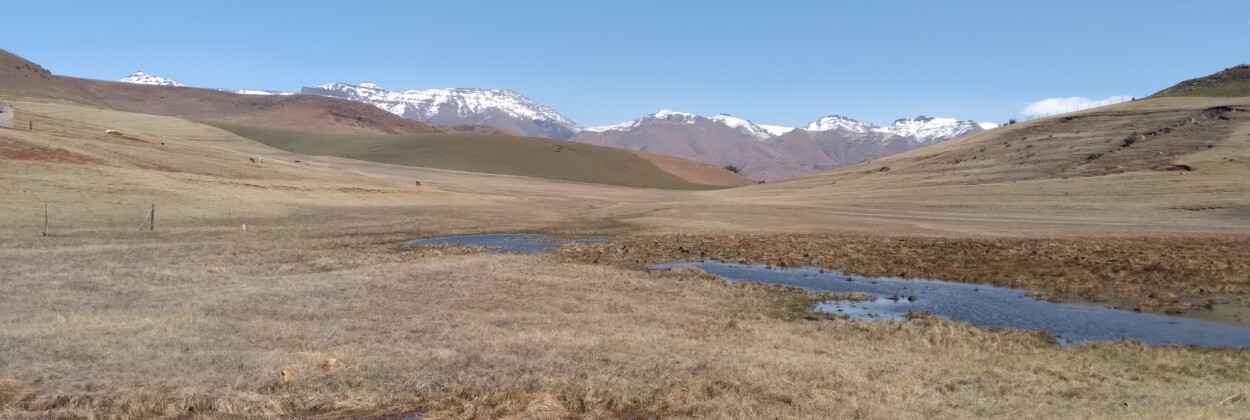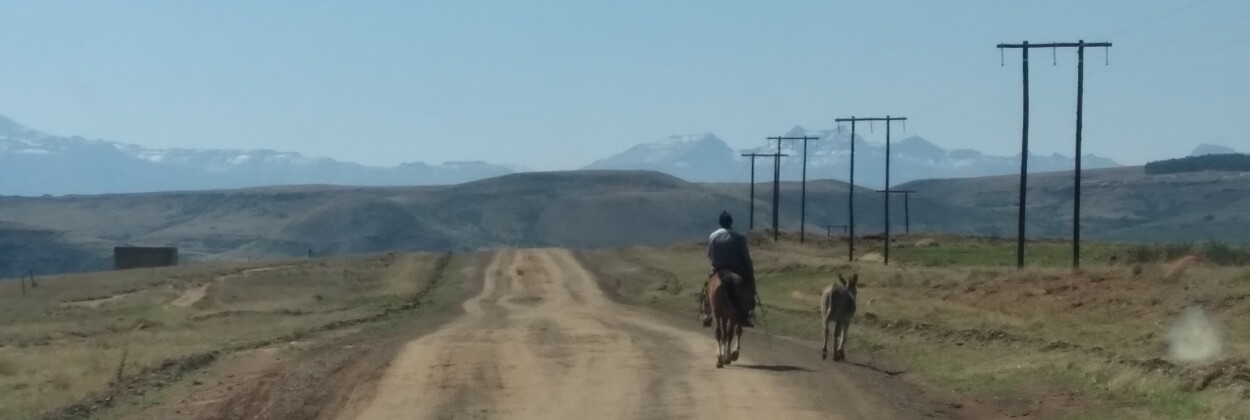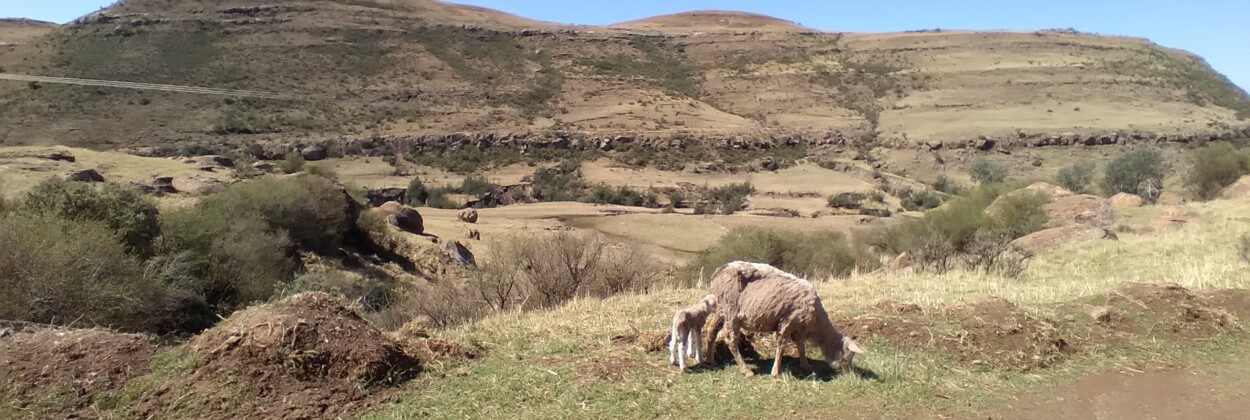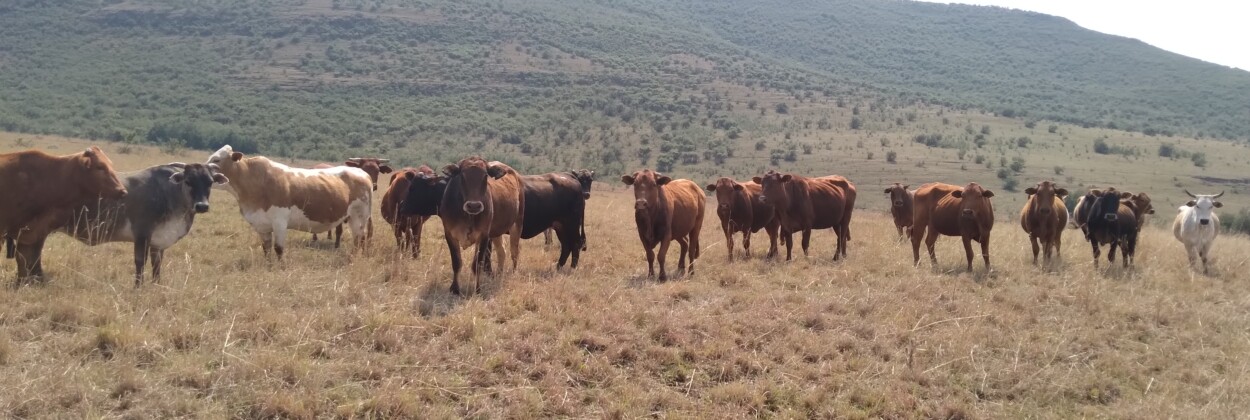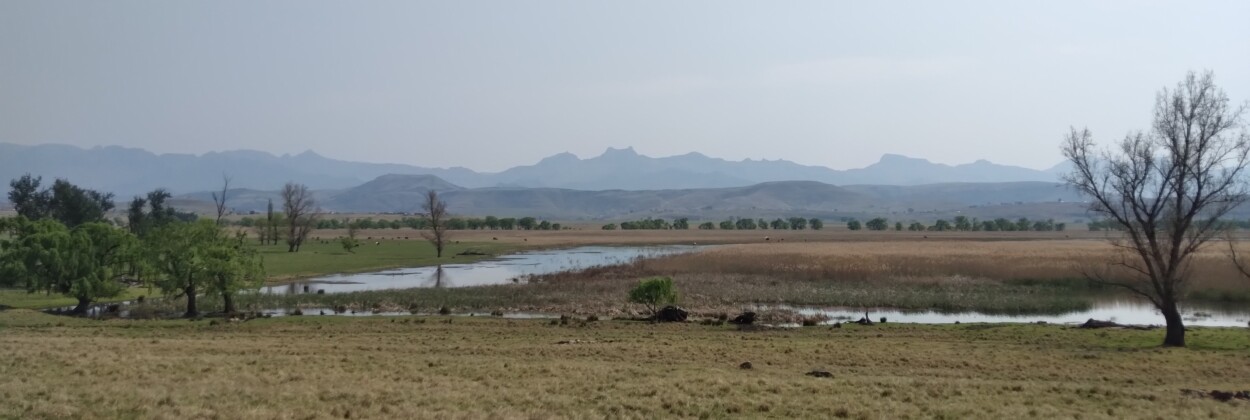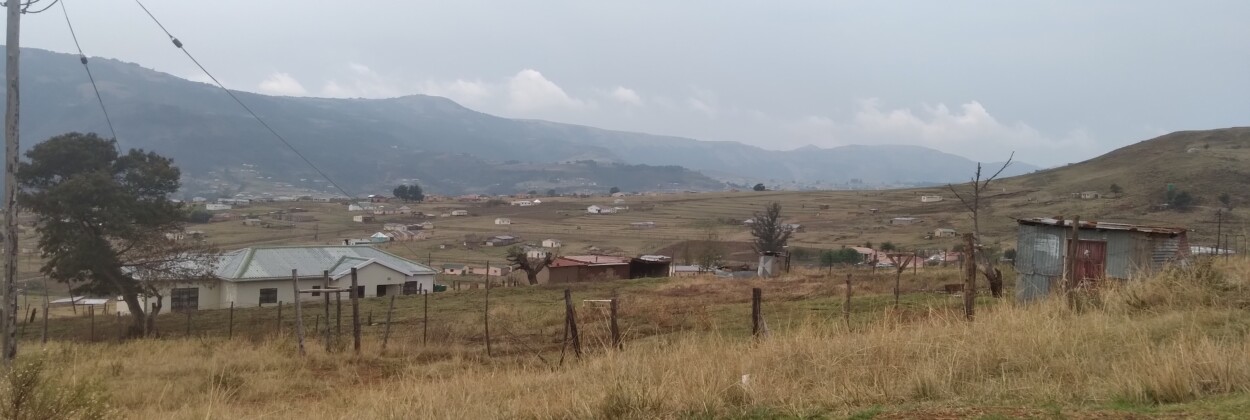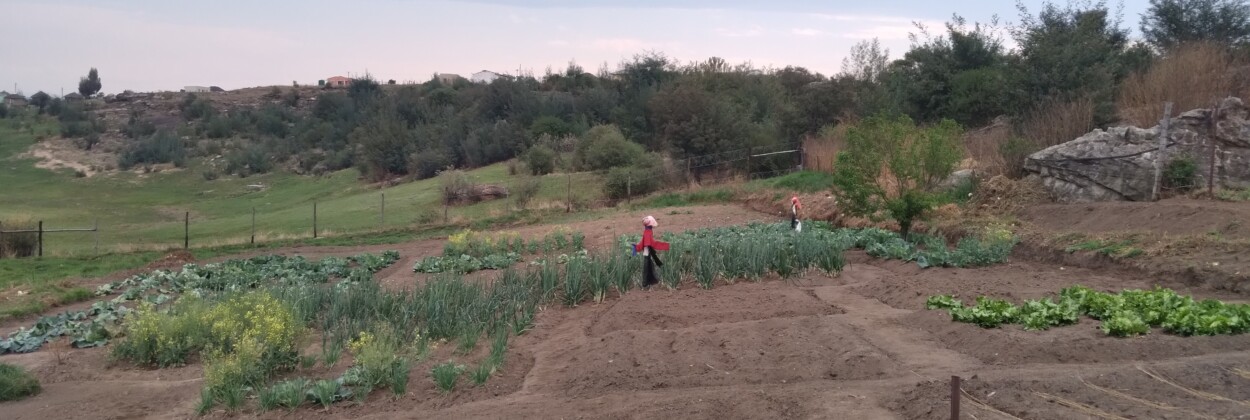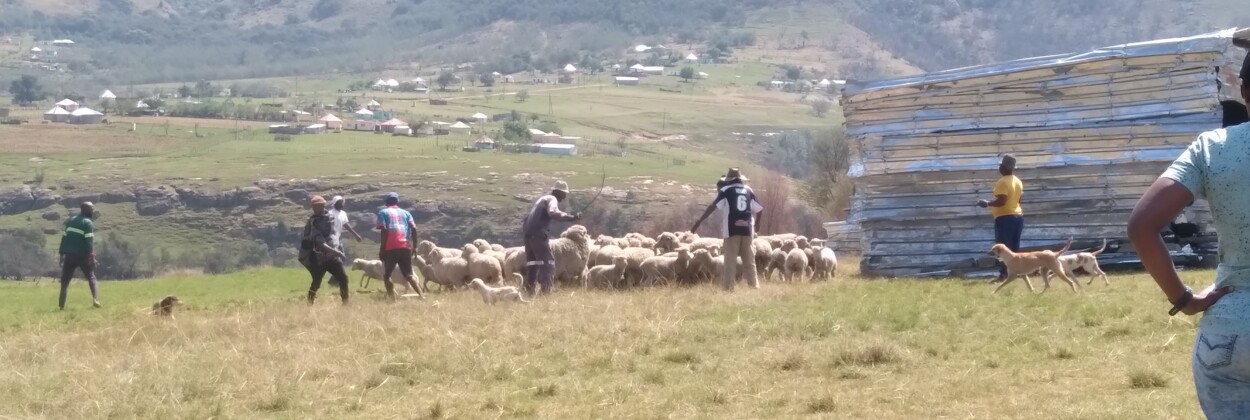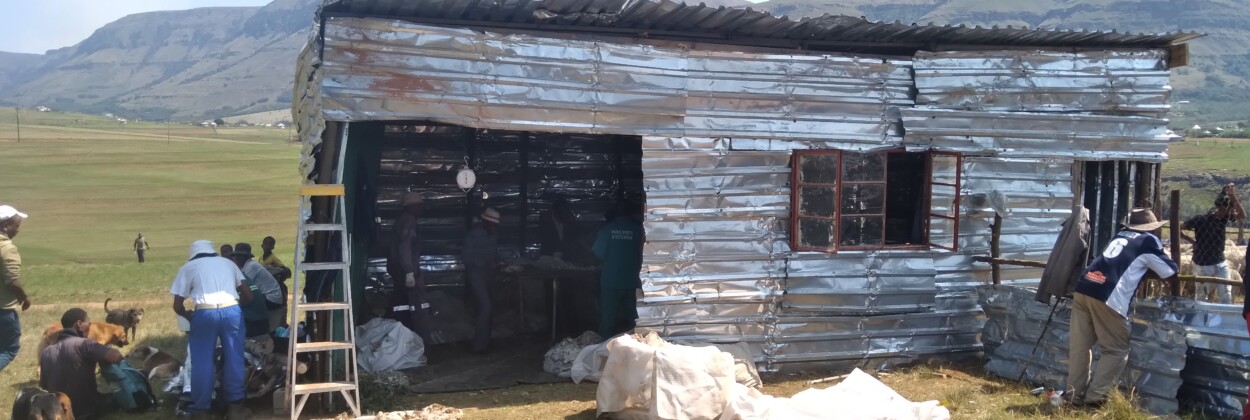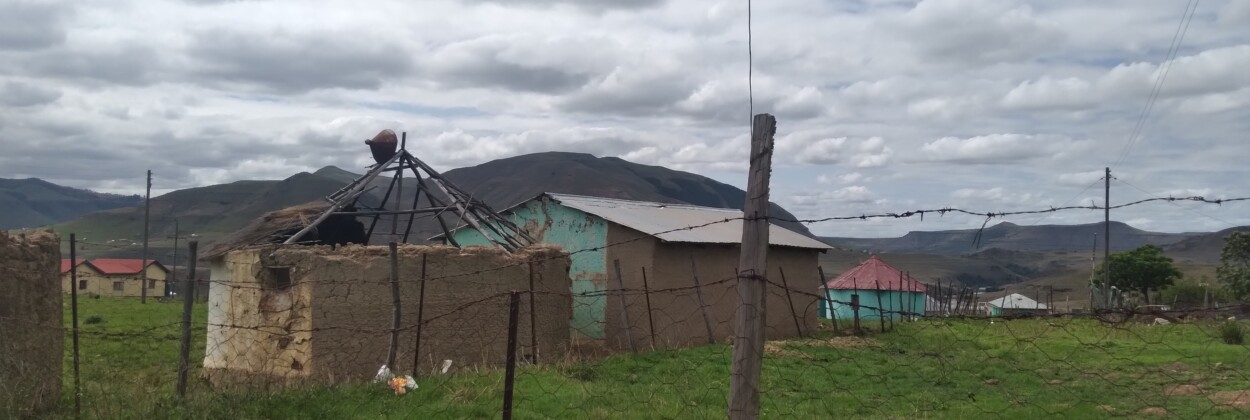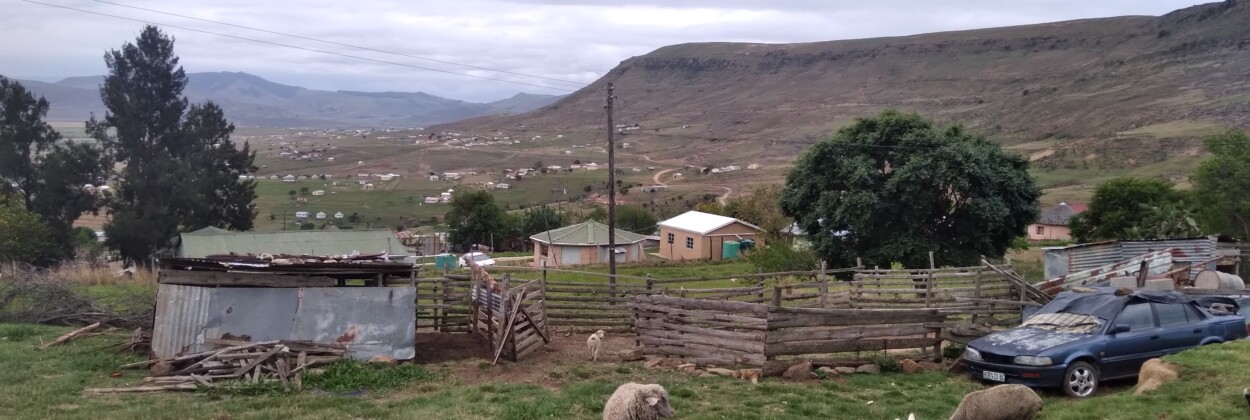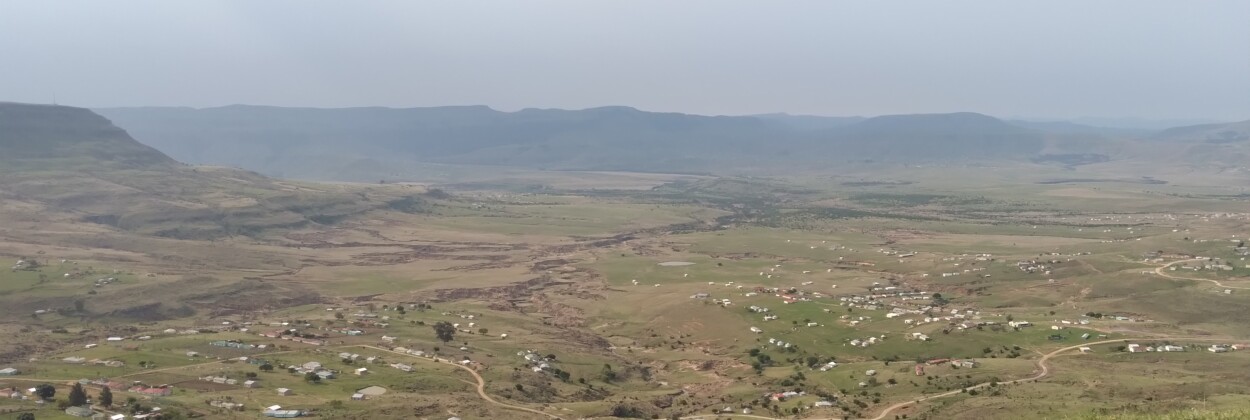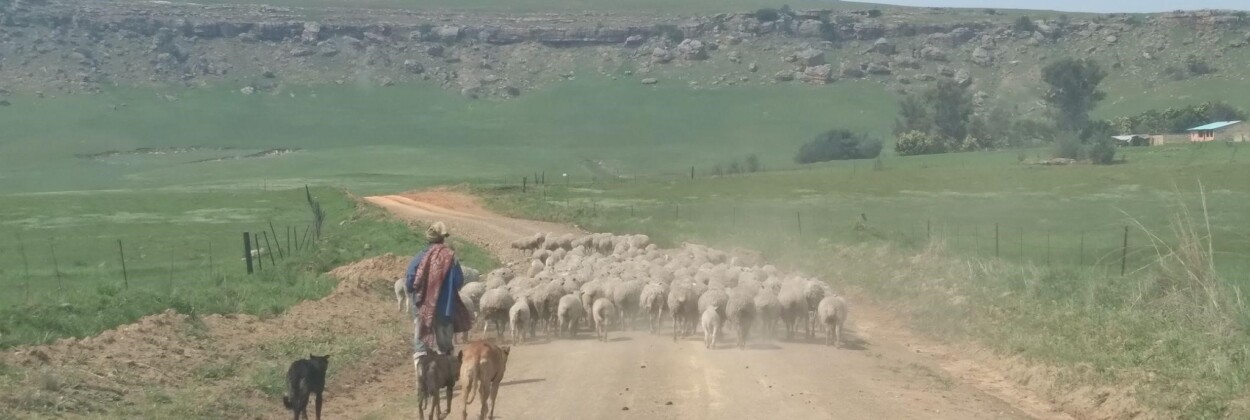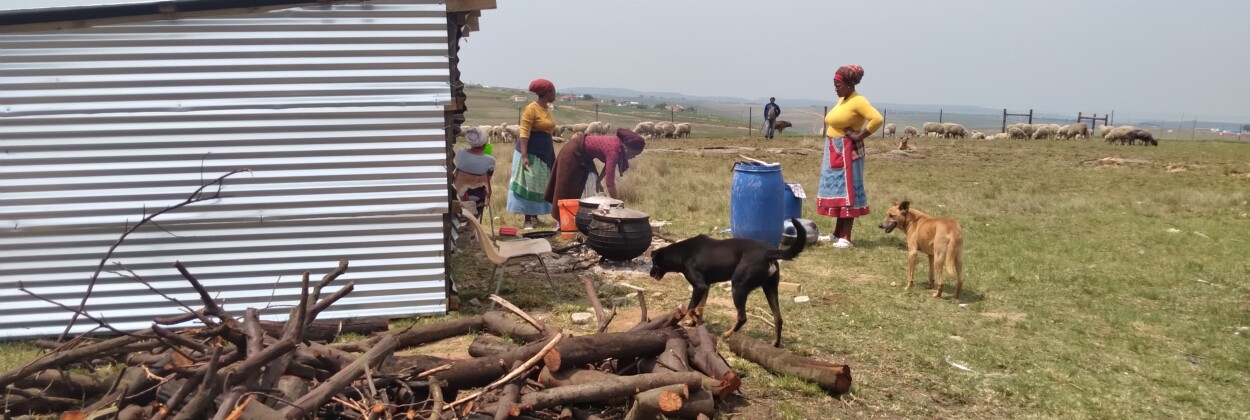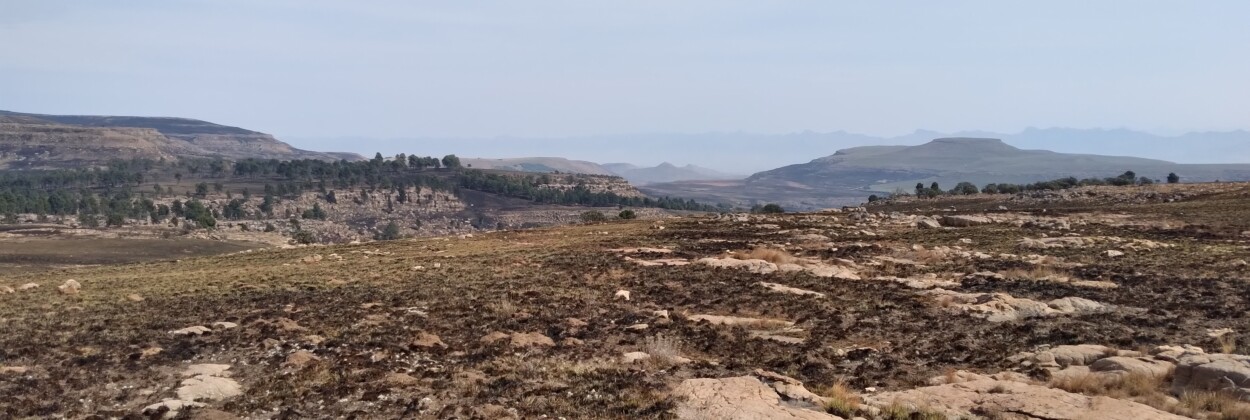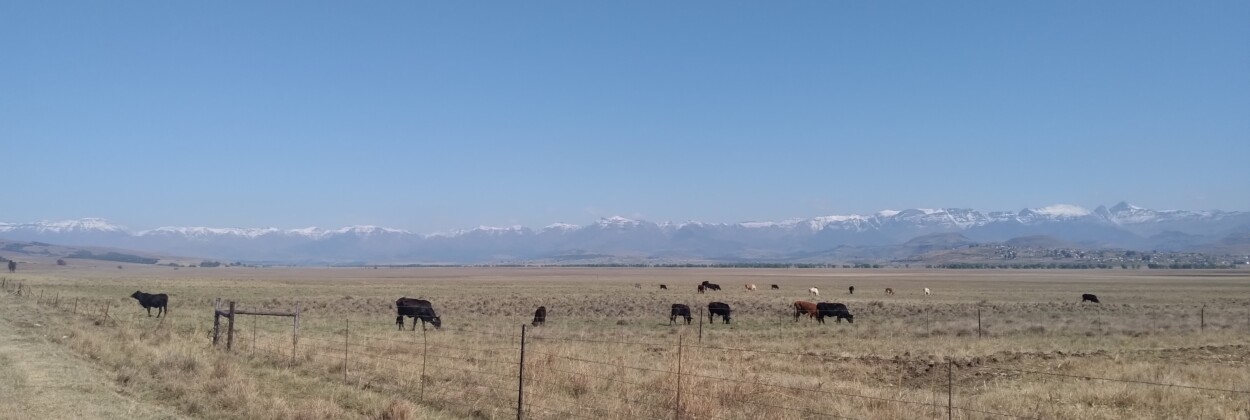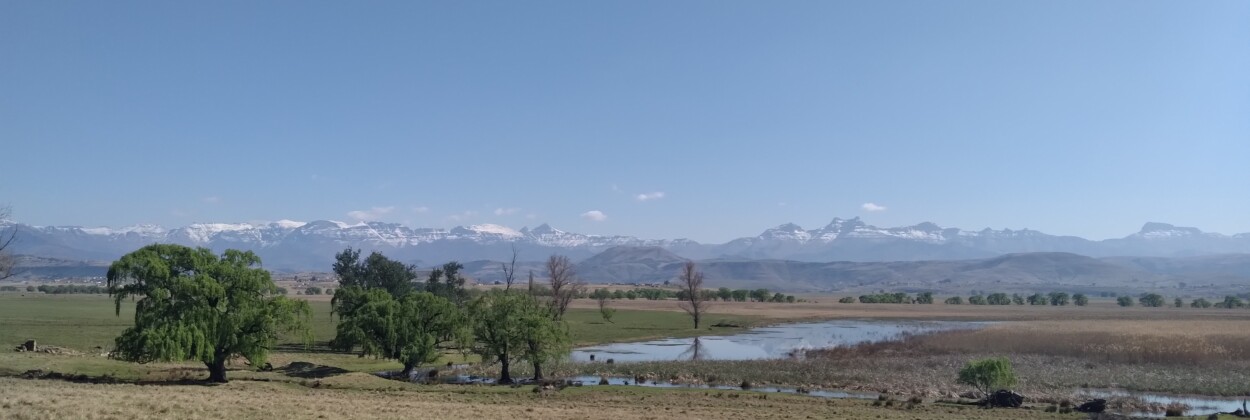The drainage basin for the Umzimvubu River is located along the northern boundary of the Eastern Cape and includes ten local municipalities. Northern uplands and central areas are mostly covered with grasslands (~70% of the area), whereas transitions to savanna occur in the southeast. It represents a key biodiversity hotspot for its terrestrial and aquatic ecosystems.
The Matatiele Municipality in the Umzimvubu catchment is largely rural, and livestock rearing, and small-scale agricultural activities are key sectors. However, low levels of economic activity take place there, as small-scale/subsistence agriculture is not quantified in the formal economy. Livelihoods are supported by a complex combination of income and resources from social grants, intermittent employment and remittances, with high levels of poverty and unemployment.
Regarding climate-related threats, the most common challenges are long-term droughts, affecting water availability; livestock raising, and wildfires, as well as flooding and resulting soil erosion. The groups most affected by these challenges are remote and rural communities.
In this context, ALBATROSS carried out baseline assessments with 45 participants in the Matatiele area, including planning with various climate information and service providers from the Umzimvubu Catchment Partnership (UCP), to integrate climate services with specific needs. Community-based organisations, NGOs, public and private sectors, research institutions, as well as members of the local community, including traditional authorities and healers, were engaged. They explored sustainable rangeland management strategies —through the responsible use of natural resources and the removal of invasive alien species—and sustainable agricultural practices that incorporate indigenous plant species to support environmentally friendly and climate-adapted livelihoods.
A key focus of the ALBATROSS project in the Umzimvubu Catchment is ensuring that climate information—particularly related to rainfall extremes and flood risk— is meaningfully embedded into the planning and management of nature-based solutions. This involves aligning seasonal forecasts and long-term projections with the practical decisions that communities and land managers make on rangeland use, crop planning, and erosion control, helping to reduce flood vulnerability and protect agricultural productivity. A climate service to support this integration is currently being co-developed with the community.
Interventions to date:
- Baseline assessments and surveys engaged over 100 stakeholders to integrate climate services into NbS and sub-national planning, identifying local needs, gaps, and sustainable rangeland management.
Expected benefits:
- Engagement with 87 stakeholders in Matatiele (approx. 4,350 km²) to support the development and training on climate service tools.
- Empowerment of communities and especially several young ‘Eco-Champions’ and specifically women working in the Matatiele area through access to seasonal impact forecast tools tailored to local environmental and livelihood conditions.
- Improved preparedness for climate-smart agricultural practices and nature-based solutions (NbS), guided by timely and relevant climate information.
- Reduction of climatic and social-ecological threats through informed decision-making and enhanced resilience at the community level.
Hub coordinator and main implementer of interventions:
University of Cape Town
Umzimvubu Catchment Hub, South Africa
Umzimvubu , South Africa
- Region: East Southern Africa
- Climate: Temperate without dry season cold summer (Cfb)
- Main meteorological hazards: Wildfires, floods, and droughts
- Nature-based solutions supported: Sustainable rangeland management and climate-smart agricultural practices
-
Intervention: Development of climate services for NbS planning and management
Umzimvubu Catchment Hub, South Africa
- Region: East Southern Africa
- Climate: Temperate without dry season cold summer (Cfb)
- Main meteorological hazards: Wildfires, floods, and droughts
- Nature-based solutions supported: Sustainable rangeland management and climate-smart agricultural practices
-
Intervention: Development of climate services for NbS planning and management
